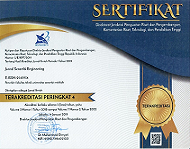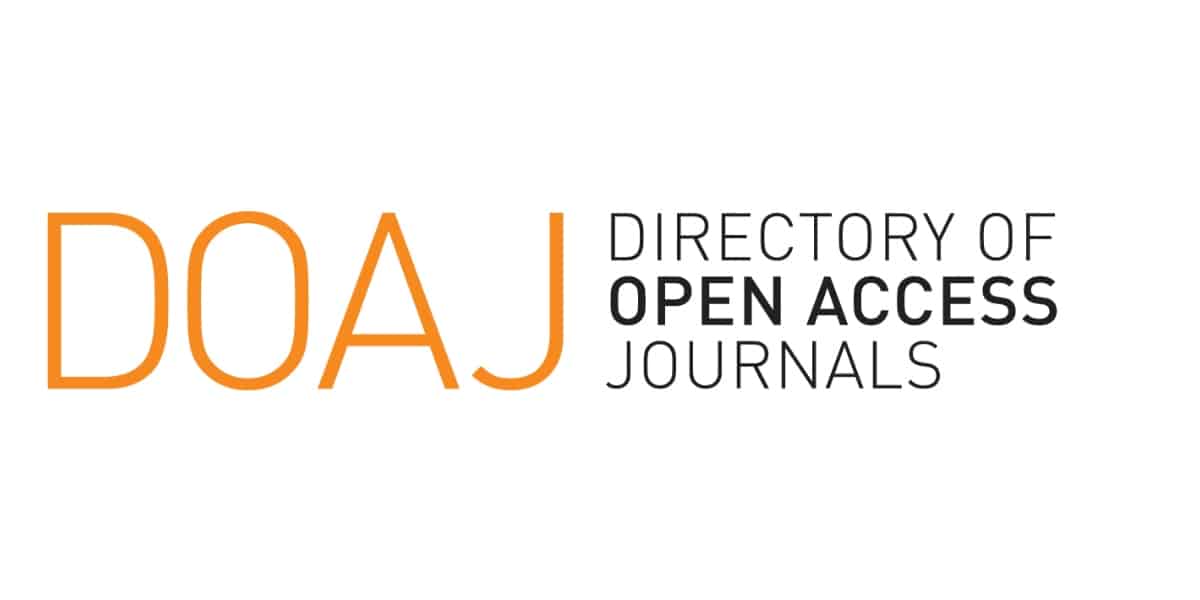Potensi Maggot Black Soldier Fly Sebagai Pengurai Sampah Organik dengan Variasi Pakan
Keywords:
BSF, organic waste, BSF frass, BSF larvaeAbstract
Given the significant amount of organic waste generated daily by households in Yogyakarta, a number of initiatives and strategies are being employed to achieve effective waste management. One potential solution is the use of Black Soldier Fly (BSF) larvae as an alternative to high protein fish feed. The larval residue (frass), which contains a variety of nutrients, may also prove beneficial to plants. This research was conducted from January to March 2024 at the Solid Waste and Hazardous Waste Laboratory, Islamic University of Indonesia, Yogyakarta. The aim of this study is to determine the potential of BSF larvae and BSF frass as organic waste decomposers, using three different types of feed: mixed food waste, vegetable waste and leaf waste. A comparative analysis was carried out between the data obtained by the researchers and the quality standards established in the 2022 version of SNI 9043-4 for fish feed, and Ministerial Decree No. 261 of 2019 for solid organic fertilisers. The results show that BSF larvae fed with mixed food waste meet the quality standards for protein and fat content, with values above 35% and 5% respectively. In addition, the total NPK value of the BSF frass produced is above 2% and the C/N ratio is below 25%. Frass that meets these standards is produced from larvae fed on mixed food waste.
References
[1] D. Soman Wisnu, Statistik Lingkungan Hidup Daerah Istimewa Yogyakarta 2021/2022. Yogyakarta: BPSProvinsiD.I.Yogyakarta, 2022.
[2] Riswan, Riswan, Henna Rya Sunoko, and Agus Hadiyarto. "Pengelolaan sampah rumah tangga di Kecamatan Daha Selatan." Jurnal Ilmu Lingkungan 9.1 (2011): 31-38.
[3] I. Indrawan, Hewan Avertebrata Sebagai Pakan Ikan Lele. Purwokerto: Fakultas Biologi, 2014.
[4] Siswanto, Anggun Puspitarini, et al. "Pengolahan sampah organik menggunakan media maggot di komunitas bank sampah polaman resik sejahtera kelurahan Polaman, kecamatan Mijen, kota Semarang." Jurnal Pengabdian Vokasi 2.3 (2022): 193-197.
[5] H. Agustin, W. Warid, and I. M. Musadik, “Kandungan Nutrisi Kasgot Larva Lalat Tentara Hitam (Hermetia Illucensi) Sebagai Pupuk Organik,” J. Ilmu-Ilmu Pertan. Indones., vol. 25, no. 1, pp. 12–18, Jun. 2023, doi: 10.31186/jipi.25.1.12-18.
[6] W. Wiersman, Research Methods in Education : an introduction. Boston: AllynandBacon, 1991.
[7] Kumar, Sushil, et al. "Tillage based crop establishment methods and zinc application enhances productivity, grain quality, profitability and energetics of direct-seeded rice in potentially zinc-deficient soil in the subtropical conditions of India." Communications in Soil Science and Plant Analysis 53.9 (2022): 1085-1099.
[8] SNI, “Standar Nasional Indonesia: Pupuk Organik Padat (SNI 7763:2018).,” 2018
[9] SNI 7763, “SNI 7763: Pupuk Organik Padat,” 2018
[10] Muhayyat, Mahfudl Sidiq, Ahmad Tawfiequrrahman Yuliansyah, and Agus Prasetya. "Pengaruh jenis limbah dan rasio umpan pada biokonversi limbah domestik menggunakan larva black soldier fly (Hermetia illucens)." Jurnal Rekayasa Proses 10.1 (2016): 23-29.
[11] W. Wahyuni, R. K. Dewi, fajar Ardiansyah, and R. C. Fadhlil, Maggot BSF Kualitas Fisik dan Kimianya. Lamongan: LITBANGPEMASUNISLA, 2021.
[12] R. Retno and J. Arleston, Nutrisi dan Pakan Ikan, 1st ed. Bandung: Widina Bhakti Persada Bandung, 2021.
[13] Putranti, Gita Paramadina. "Pengaruh protein dan energi yang berbeda pada pakan buatan terhadap efisiensi pemanfaatan pakan dan pertumbuhan ikan mas (Cyprinus carpio)." Journal of Aquaculture Management and Technology 4.3 (2015): 38-45.
[14] D. A. T. Utami, Y. Aida, and F. S. Pranata, “Variasi Kombinasi Tepung Labu Kuning (Cucurbita Moschata D.) Dan Tepung Azolla (Azolla Pinnata R.Br.) Pada Kecerahan Warna Ikan Koi (Cyprinus carpio L.),” 2013.
[15] SNI 9043-4, “SNI 9043-4:2022. Pakan Buatan-Bagian 4:Ikan Lele (Clariasspp),” 2022
[16] Hutagalung, Rory, et al. "Karakteristik Daya Apung dan Daya Tahan Pelet dari Limbah Bioflok Akuaponik." Jurnal Teknologi Perikanan dan Kelautan 12.1 (2021): 19-26.
[17] R. Kusumaningsih, “Pemanfaatan Maggot Sebagai Organisme Kecil Pengolah Sampah Organik,” ADMA J. Pengabdi. dan Pemberdaya. Masy., vol. 4, no. 2, pp. 533–544, Jan. 2024, doi: 10.30812/adma.v4i2.3162.
[18] Kepmen No 261, “Keputusan Menteri Pertanian Republik Indonesia No. 261: Persyaratan Teknis Minimal Pupuk Organik, Pupuk Hayati, dan Pembenahan Tanah,” 2019
[19] Y. A. Puluhulawa, N. Y. Kandowangko, and M. Solang, “Pupuk Terhadap Kandungan Proksimat dan Mineral pada Suruhan Peperomia pellucida,” Agrosains J. Penelit. Agron., vol. 23, no. 2, p. 60, Nov. 2021, doi: 10.20961/agsjpa.v23i2.47434.
Downloads
Published
Issue
Section
License
Copyright (c) 2024 Diah Dianingtyas Sukardi, Bagus Dwi Setyawan (Author)

This work is licensed under a Creative Commons Attribution 4.0 International License.
















